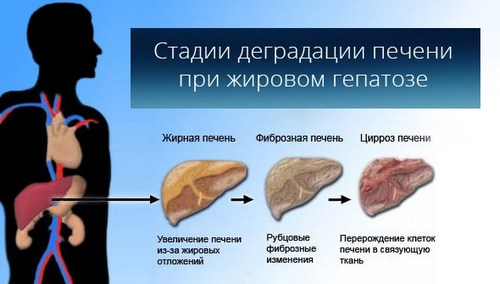Many terrible viruses, including the deadly, enter the body through the blood. But is there any Hep C sexually transmitted? To find out, we must first understand the features of this disease and understand what are the ways of infection in General, and some of them provide a real threat and what is just unlikely.
Hepatitis C is a dangerous, but curable
Hepatitis C is an infectious disease caused by the hepatitis C virus that in Microbiology is marked by the abbreviation HCV. Myth 1: Hepatitis C infects only liver. In fact, the virus affects other organs and tissues – like lymphoid (liver, spleen, thymus) and other origin (bone marrow).
Myth 2: If you feel good, then sickness is not. This virus in the masses is called a “silent killer”, and here’s why: an infectious disease can develop in the body for years (!) asymptomatic. After the virus enters the bloodstream, it causes an infectious disease of the internal organs, which without treatment becomes chronic. It is a chronic infection causes liver fibrosis, which in end result leads to cirrhosis and even to cirrhosis-cancer. Because of expansion of veins of esophagus and stomach can cause severe bleeding, which ends in death.
To identify and diagnose the hepatitis C independently is very difficult, because acute hepatitis occurs only in 15% of cases. Thus, symptoms are weight loss, loss of appetite, nausea, fatigue, pain in joints and muscles. Very rare “the gentle assassin” immediately manifested by jaundice. So to be sure better every year (and if you are at risk, every six months) blood analysis to in case of infection with a dangerous virus (including hepatitis) to start treatment immediately, not giving the disease a chance to develop into a chronic form.

Myth 3: hepatitis C cannot be cured. As already mentioned, this type of hepatitis is caused by a virus – and therefore is treated with antiviral medications. These include pegylated interferon, ribavirin, boceprevir and telaprevir, which are prescribed by a doctor in various combinations and doses depending on the severity of the disease, ways of infection and other factors. Therapy can last from six months to a year.
In cases of treatment of the disease, which has already moved into the chronic form, complete recovery was achieved in 50-80%.
How is hepatitis C: risk groups
Hepatitis C is the disease with parenteral and instrumental by infection, that is transmitted through intravenous, intramuscular and intra-arterial, subcutaneous injection, and other ways of transmitting the virus directly from infected blood into the bloodstream of a healthy person. Since the occurrence of this disease is quite long and often asymptomatic, to determine exactly how a person was infected, very difficult. There are two risk groups, the first of which exactly leads to hepatitis C infection, and the second implies such a possibility.

The objects with which the transmission of HCV is high:
- Intravenous drug use – this method is the most common. More than one third of cases of infection with this dangerous virus in the world were due to intravenous drug use. This may also include the cases of the use of contaminated surgical instruments, needles for injection, etc. in the healthcare system, but this happens rarely and in countries with a low level of development of medicine.
- Piercing and tattoos. People who are getting tattoos or tattooing, are also at risk. After all, a tool without a thorough sterilization may introduce infection directly into the blood. At the same time, modern licensed salons in the appropriate direction of services carefully monitor the cleanliness of the instrument and whenever possible, replace disposable.
- Things of personal hygiene. These include toothbrushes, razors, tools for pedicure and manicure – that is, those who may come in contact with blood. Even in the dried blood of an infected person remains virus HCV. At the same time, even if the blood of a person suffering from hepatitis C gets into the skin or mucous membrane healthy, it is in any case will not lead to contamination of the latter.
To possible and unlikely routes of transmission are: sexual intercourse, transmission during pregnancy from mother to baby, household contact with the patient. To get Hep C sexually is possible with the numerous contacts with different partners without a condom.
Dangerous sex with someone who has hepatitis C?
The virus is transmitted from a pregnant mother to the fetus only in 7% of cases – despite the fact that she became infected before or during pregnancy. The transmission of HCV is possible through kissing, hugging, insect bites, sharing a Cup. Sexually transmitted hepatitis or not is still unknown. Such doubt is due to the fact that, in principle, to identify the path of infection is difficult.
It has been proven that transmission of hepatitis b is possible and probable through vaginal and anal sex, which was not protected by barrier contraceptive (i.e. without a condom) and have led to micro-cracking and internal damage of the mucosa.
Hepatitis C can be transmitted sexually through oral sex, if there is damage to gums, tongue, throat and other tissues of the oral cavity. Infection within the heterosexual couple who has no other sexual contacts “on the side” and does not practice extreme kinds of sex, almost impossible. The ways of protection from intrusion if your home or a loved one is sick with the virus HCV that can determine your doctor.



